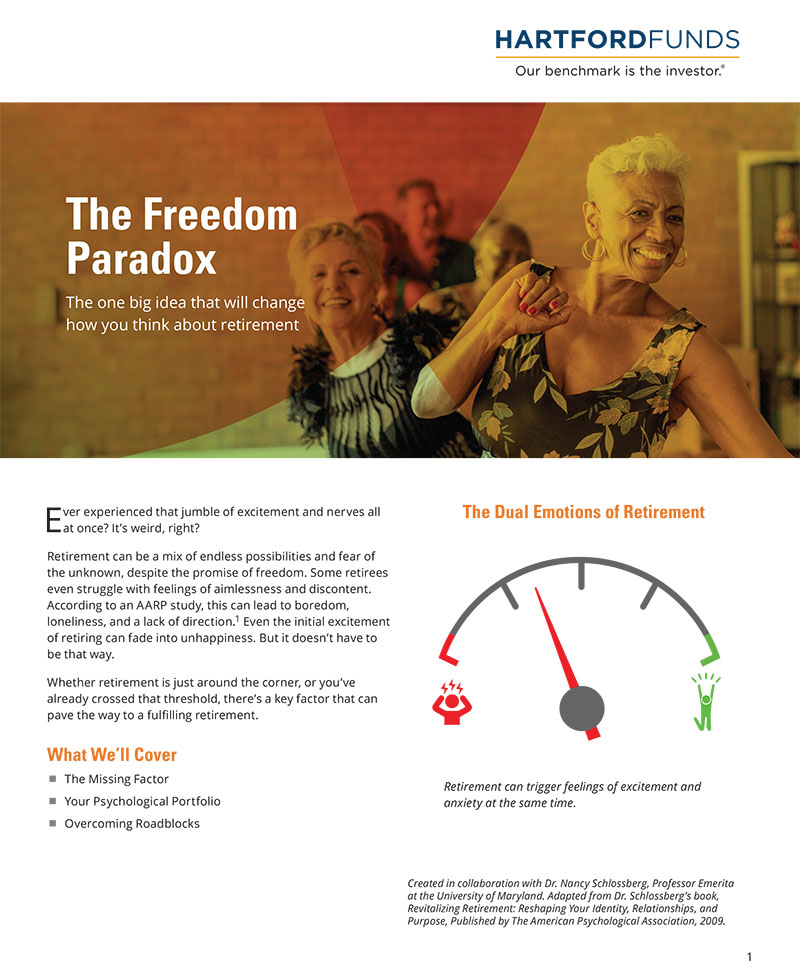Winter Forum: a check-up on living well
The poet Robert Browning wrote, “The Best Is Yet to Be.”
Maybe. Maybe the future will be wonderful — if we can figure out how to live well. Ted Fishman, author of the best-selling “Shock of Gray,” wrote: “And while we will likely engineer ever-longer lives, can we figure out how to fill the extra years with vitality and joy?”
9 Secrets of Retirement Happiness
A large nest egg doesn’t guarantee a happy retirement. While a significant retirement income is likely to make you happier than just scraping by, money isn’t the only necessity. Here are some tips for cultivating retirement happiness:
Job Loss – Up in the air
I found the movie “Up in the Air” very disturbing. I was involved in a reduction in force (RIF) at NASA Space Flight Center a number of years ago. It turned out that information was fed into a computer and decisions were made about which job to eliminate. All 53 jobs that were eliminated were held by men, ranging from the grass cutter to top executive. It was horrible for the men—they said things like “It is worse than a diagnosis of cancer,” “How can I face my family?” “This is terrifying.” However, NASA handled this downsizing in a humane and helpful way.
Each individual was offered the opportunity to participate in a weeklong outplacement program. But more important, each individual was assigned to someone in human resources as a “buddy” until the person found an alternative job. So when we studied these men the week of the RIF and followed them up six months later, we heard things like, “I know now that I can handle anything now.” “Up in the Air” unfortunately shows the inhumanity of letting people go in today’s world. It reflects a heartless, cynical view of the way things are handled but not the way they could be handled.
Transition Tips: When you are initiating a transition for someone else, be sure to
1) Be honest and direct about what you are telling the other person;
2) Provide several alternatives for the person receiving the news;
3) Offer to meet again with the person to see how things are going;
4) Research the topic and suggest some books that might help;
5) Offer to link the person with someone else in the same boat.
Moving Office Spaces Can Make Us Queasy: How To Cope With Small Changes In Life
Talking recently with Elizabeth Bernstein, a columnist for the Wall Street Journal, she described the upheaval when her offices were moved. She has it right. A seemingly innocuous transition like moving office space can, in fact, make us queasy. I studied transitions for over thirty-five years and found that any change, over which you had no control, can have extraordinary consequences.
The findings that Bernstein describes—the emergence of adolescent feelings, the changes in routines (including where to find the bathroom) affected her relationships and assumptions about the way life will be for her. If moving offices can have such an impact, imagine what divorce, death, or a lover going off to war can do to us. That’s why it is so important to learn about transitions and how to cope with them.
Some transition tips from Overwhelmed: Coping with Life’s Ups and Downs
Tip 1. Realize that whenever transitions change your roles, routines, relationships and assumptions–even if they are transitions you want–you will be challenged.
Tip 2. Transitions do not take place at one point in time–they are a process over time. It is like going on a trip–you dream about it, plan it, go on the trip, take your pictures, pay the bills, remember it. It is much more than the 10 days on the trip.
Tip 3. You have resources to cope with the transition process–you can learn new coping strategies. More on coping strategies in the next blog.


